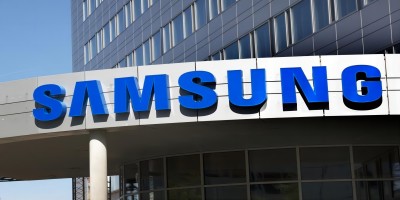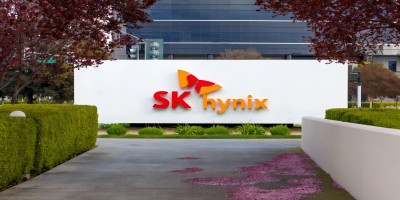Behind the boom in the global semiconductor industry lies a long-standing "anti-union" tradition. However, recent events seem to indicate that this situation is changing. Strike action by employees at Samsung, South Korea's largest semiconductor maker, could be a catalyst for the rise of a trade union movement in the global semiconductor industry.
Earlier this month, Samsung employees staged a three-day strike to demand higher pay. They then announced they would take the step of an indefinite strike. The demand came after Samsung reported a 15-fold jump in second-quarter operating profit.

This trend reflects the huge demand for chips in the booming field of artificial intelligence. With hundreds of billions of dollars pouring into the semiconductor industry worldwide, governments have also identified chip manufacturing as a key strategic industry.
Samsung said the strike would have a limited impact on its business due to its highly automated production processes. However, a 24-year-old Samsung engineer involved in the strike told the Wall Street Journal that even with a high degree of automation, there can be multiple errors in the chip manufacturing process if there is no support from maintenance engineers. He mentioned that in a typical shift, there are usually more than five maintenance issues that need to be addressed.
Samsung's labor union said that after the first week of the strike, the factory's 8-inch wafer production line was reduced from 80 percent to 18 percent. Jang Young-jae, a professor of semiconductor systems engineering at the Korea Advanced Institute of Science and Technology, pointed out that although chip factories can cope temporarily by skipping regular maintenance and other ways, ultimately without the participation of employees, operations will inevitably be affected.
Why are there few unions in the semiconductor industry?
The peculiar nature of the semiconductor industry makes it hard to shut down. To produce the chips needed for smartphones, computers and servers, these factories need to run around the clock. In this context, hard-working and low-cost labor is key to supporting the industry - at least until all production processes are fully automated.
Intel co-founder Bob Noyce has said that "keeping employees non-unionized is critical to the survival of most of our businesses," arguing that they would not be able to continue operating if unions emerged.
In the United States, when the semiconductor industry was growing in the early 1980s, companies and trade associations suppressed union activity through surveillance, intimidation of employees, illegal dismissals of union members, blocking union training, and the use of financial resources. This phenomenon has persisted in recent years. In 2023, for example, Momentive Technologies, a semiconductor supply chain company based in Strongsville, Ohio, launched an anti-union campaign, even though most of its employees openly support unions.
Samsung also has a long history of anti-union behaviour in South Korea. In Taiwan, the founder of TSMC, Richard Chang, also insisted on the "non-union theory", arguing that "good enterprises do not need unions".
The rise of trade unions
Although for many years unions have been rare in the world's major semiconductor hubs such as the United States, South Korea and Taiwan, that is changing.
This month, more than a dozen employees of Analog Devices, a chip factory in Oregon, staged a rally calling for better working conditions and a $27 an hour minimum wage. They argued that the requirements were reasonable given that the plant received state subsidies and federal support under the Chip Act.
The Communications Workers Union of America (CWA) has been working to help unionize the nation's largest chip companies. Carl Kennebrew, president of the group's industry division, noted the unrest in South Korea and called for labor agreements at U.S. companies receiving federal aid.
In May, CWA began talks with Micron Technology on a deal designed to make it easier for CWA to organize workers at new plants. In November, the CWA reached a similar agreement with Akash Systems, a California-based semiconductor company, the first between the organization and a chipmaker.
Bloomberg's Korean reporters Sohee Kim and Shinhye Kang observe that the strike could spread over time, potentially damaging not only prominent South Korean companies but also triggering a similar reaction in the global tech and chip industry. The chip industry is expected to double its annual revenue to $1 trillion by the end of 2030. With the prosperity of the industry, the concern of workers in the industry for fair treatment will continue to increase.
* Disclaimer: This article is from the Internet, if there is any dispute, please contact customer service.



